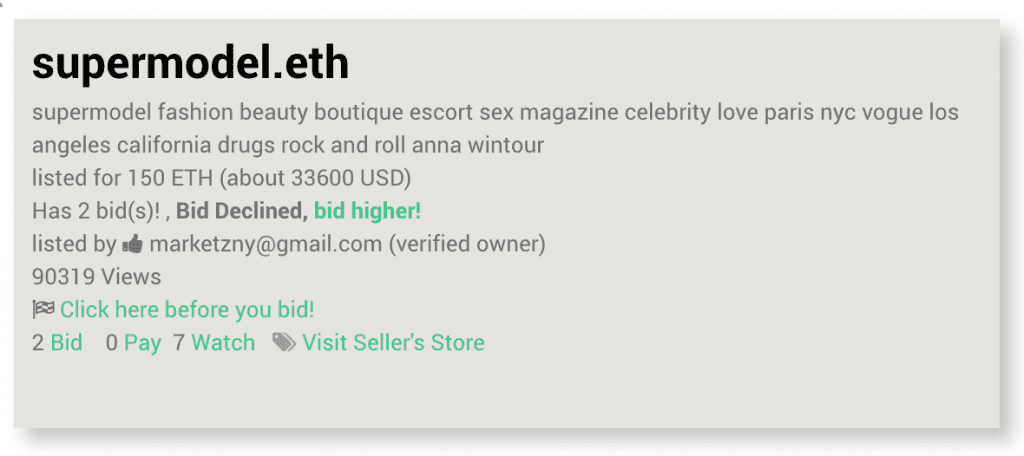Crypto Needs Addresses Humans Can Actually Read

Share this article
“What’s in a name?” Juliet asks in her famous balcony scene. The answer is, quite a lot. No one’s going to buy tickets for a Robert Zimmerman* concert, and Maurice Micklewhite** just doesn’t seem like a name for the movies. And it’s a lot harder to send money to someone whose name starts with 1PDK2yNiz….
User-friendliness is one of crypto’s biggest problems. Bitcoin newbies hit that learning curve like a brick wall: block times, private keys, and worst of all, the address: a 64-character string of gibberish in which a single typo can make your money disappear forever.
Those confusing addresses cost real money. Although Bitcoin and Bitcoin Cash have different address formats, many new investors lost their crypto by naively sending the wrong kind of bitcoins to the wrong address. On a more sinister note, several kinds of malware target the clipboard, replacing pasted content with the hackers’ address.
Not only would real, readable names help prevent these problems, they would also make cryptocurrency a lot simpler for the people who’ve never heard of hashing or Schnorr signatures. Several blockchain projects are developing simple ways to develop public addresses that you can actually read.
Although the problem is not yet fully solved, here’s the progress so far:
Vanity Addresses
The first effort at readable addresses was also, in retrospect, the clumsiest. In the early years of Bitcoin, coders alighted on a computationally-expensive way to squeeze a name or word into a Bitcoin address—by brute force.
Here’s how Andreas Antonopoulos explains it in Mastering Bitcoin:
[T]he process essentially involves picking a private key at random, deriving the public key, deriving the bitcoin address, and checking to see if it matches the desired vanity pattern, repeating billions of times until a match is found.
For short phrases, it’s not too hard to generate a vanity address, but it easily adds up to weeks or years when you get past five letters. Several “address mining pools” arose to find and sell vanity addresses, which can be combined with a separate private key without compromising the users’ safety.
The Ethereum Naming Service
The next big step towards legible usernames was on Ethereum. The Ethereum Name Service allows anyone to reserve a .eth address, in much the same way that you’d buy a website URL from a domain name registrar.
But this is Ethereum we’re talking about, so you have to get your name the Vitalik way—through a complicated five-day Vickrey auction on the public blockchain, managed by smart contracts.
Although the process is intended to prevent name-squatting, it adds a layer of complexity to an already-byzantine ecosystem. It also doesn’t do much to prevent squatting; popular-looking domains are currently on sale for dozens or hundreds of ETH, and adoption is still at a trickle—which is ironic, because ENS was supposed to make Ethereum simpler.

Despite its shortcomings, ENS has inspired copycats in Bitcoin and Bitcoin Cash. Last May, the Internet of Value launched announced readable Bitcoin addresses (not yet available), and the Portal Network will let you reserve a .bch address for Bitcoin Cash.
NEM
Nem might be older than Ethereum, but the smart asset platform solved the name problem more directly: instead of clumsily tacking a name service on top of the blockchain, Nem developers hard forked their network to a revamped protocol with naming built in.
Creating a namespace costs 100 XEM (~$10 USD) and an extra 10 XEM for each sub-namespace. By assigning names directly through the Nano Wallet, users are also spared the trouble of navigating a complicated smart contract system.
Newer Blockchains
Part of the latecomer advantage is learning from your predecessors’ mistakes. In the case of EOS, those lessons include addresses that look like someone’s name rather than a monkey recreating the works of Shakespeare. EOS is not the most intuitive blockchain system, but the inclusion of human-readable addresses from the beginning is one of Block.one’s better ideas.
Crypto developers are finally realizing how important real names are for adoption. In a recent AMA, Charles Hoskinson said it would be “very easy to do human-readable addresses,” before listing a number of hypothetical solutions. The roadmap suggests that Cardano is more than halfway there.
Others are closer. Stellar’s federation protocol lets anyone link their name, website or even email account to a blockchain address, and the feature is currently live on StellarX.
Older blockchains are catching on too. Dash, which is based on the Bitcoin codebase, plans to include human-legible names in the new Evolution dApp, allowing anyone to “add contacts and pay them by name.” A recent Dash Improvement Proposal includes provisions for “registering a new blockchain username, adding blockchain user credit, resetting a blockchain user key, and closing user accounts, as well as a few other things,” according to one of the currency’s leading news sources.
It could be a game changer, although Dash Core has a history of missing deadlines.
Visual Addresses:
We’ve saved our favorite addresses for last. They’re not yet out of the testing phase, and they’re technically not human-readable.
This is a MonKey, a public address for Banano coin:

MonKeys aren’t likely to take off anytime soon–the fruity memecoin isn’t listed on any exchanges, and there isn’t yet any meaningful price discovery. In any case, “monkey with a yellow striped hat and glasses” isn’t much of an improvement over character strings. But they’re a lot more adorable than a QR code.
It’s too early to see which blockchains will cross the finish line to mass adoption, and which will be left behind. But, just as fame and sponsorships don’t always go to the swift, having easy-to-use usernames might be as important in this race as privacy or scalability.
*As discussed in the introduction, Maurice Micklewhite doesn’t exactly roll off the tongue: but as Michael Caine he’s won two Academy Awards and been nominated for a further four.
**And Robert Zimmerman doesn’t conjure the image of a folksy wordsmith, but as Bob Dylan he won a Nobel Prize (and sold a few records).
The author is invested in both Bitcoins, Ethereum, Cardano, Dash, and Stellar, which are named in this article.
Share this article
